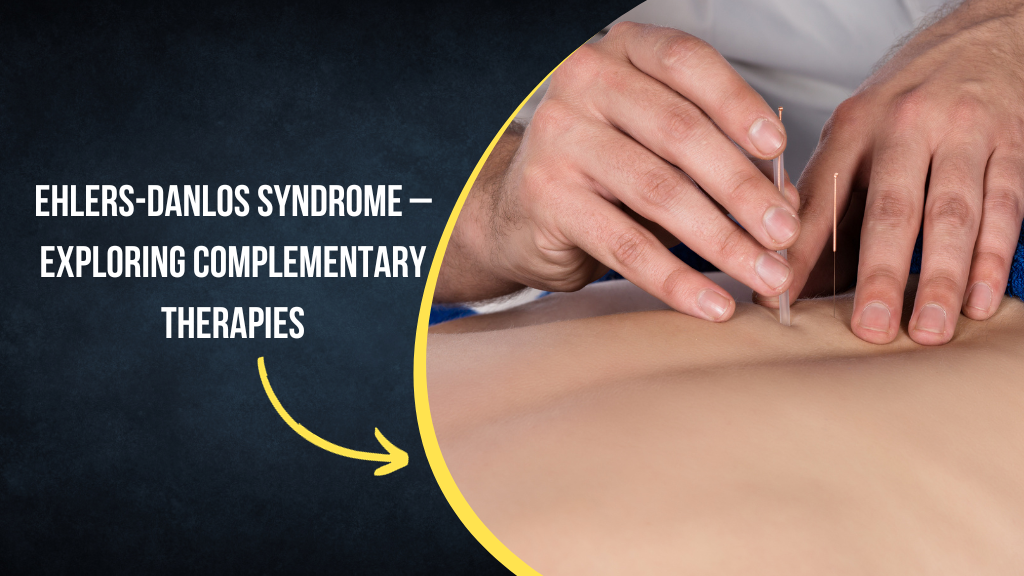Hypermobility Syndrome (HMS) is a condition characterised by the excessive flexibility of joints, often resulting in chronic pain, joint instability, and other associated symptoms.
Traditional medical approaches like physical therapy, pain management, and medications have long been used to manage the condition.
However, an increasing number of individuals with HMS are exploring complementary therapies to augment their treatment plans. We briefly delve into the world of complementary therapies and their potential benefits for HMS.
Traditional vs. Complementary Therapies
Traditional treatments for HMS typically focus on symptom management. Physical therapy is often recommended to improve joint stability and strength, while pain medications help alleviate discomfort.
These approaches can be effective, but they may not address the root causes of HMS or provide comprehensive relief for all individuals.
Exploring Complementary Therapies
Complementary therapies, also known as alternative or integrative therapies, are gaining popularity as part of a holistic approach to managing HMS. These therapies aim to enhance overall well-being, reduce symptoms, and improve the quality of life.
- QiGong Training – Qigong is a mind-body practice originating from Chinese medicine that combines controlled breathing, gentle movement, and meditation. Practitioners believe that it helps balance the body’s vital energy or Qi. For individuals with HMS, Qigong can offer several benefits, including improved posture, enhanced joint stability, and better awareness of body mechanics. Additionally, it can aid in relaxation, stress reduction, and pain management.
- Acupuncture – Acupuncture involves inserting thin needles into specific points on the body to promote balance and healing. Some individuals with HMS may experience reduced pain, improved joint stability, and enhanced energy flow after acupuncture sessions.
- Yoga and Pilates – These mind-body practices focus on improving strength, flexibility, and body awareness. Modified yoga and Pilates routines may help individuals with HMS strengthen their core muscles, stabilise joints, and reduce pain.
- Massage Therapy — Therapeutic massage may alleviate muscle tension and reduce pain associated with HMS. Techniques like myofascial release and deep tissue massage are often beneficial for those who suffer joint pain.
- Nutritional Support – Dietary modifications and nutritional supplements may help reduce inflammation and support joint health. Omega-3 fatty acids, collagen supplements, and anti-inflammatory diets may also be worth exploring.
- Mindfulness and Stress Management – Mindfulness meditation, relaxation techniques, and stress management may help individuals cope with the emotional and psychological aspects of living with HMS. Reducing this stress could indirectly alleviate symptoms.
QiGong Training and Acupuncture Treatment in London
For more information about our complementary health services, such as Acupuncture treatment in our London clinic, don’t hesitate to get in touch with our team at Acubody.








